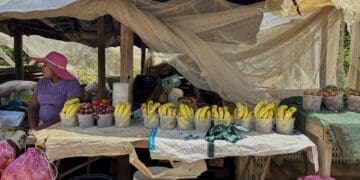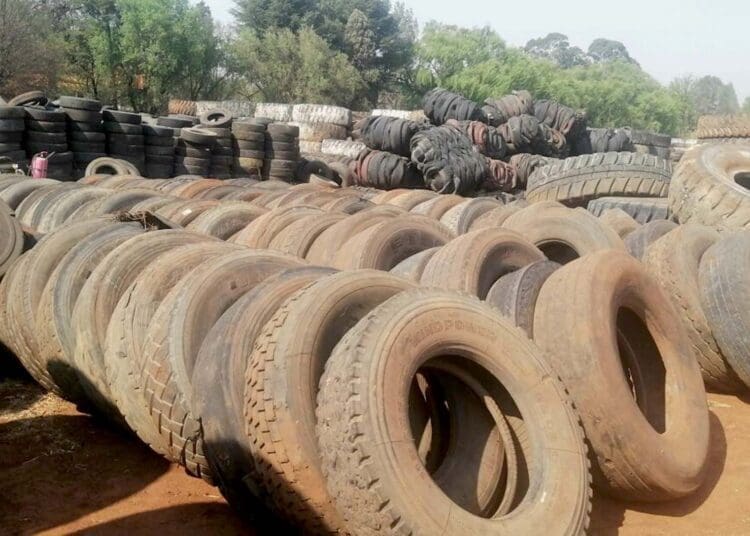By: Anna Majavu
Formalising the unregistered second-hand tyre industry and recognising it as a valuable part of the tyre value chain is the only way to improve safety on the roads and help these micro-enterprises grow as businesses, new research has found. Second-hand tyre microenterprises are mainly based in townships and are unregulated by the government. Yet “these enterprises improve the circularity of local economies by extending the useful life of tyres, many of which would otherwise prematurely enter the waste stream”.
“In doing so, informal tyre dealerships promote reuse and reduce waste and resource consumption while also generating needed employment,” said the research, published last week by the University of the Western Cape’s Waste and Society project, the School of Economic Sciences at North West University and the Centre for Urban Economic Development at the University of Illinois at Chicago in the United States. The researchers found that the 35 informal second-hand tyre dealers in Cape Town, Tshwane and Durban they interviewed each sold an average of 82 tyres per month.
Some had been in the business for 21 years – a valuable part of processing the 12 million tyres, or 312,780 tons, that are discarded in South Africa every year. Most of the microenterprises bought their tyres “new and slightly used” from registered dealers and made very little money when they sold the tyres, mainly to taxi drivers and car owners from the community. “One participant mentioned that if he buys a tyre for R300, he will sell it for R400,” the research said. Others exported second-hand tyres to Zimbabwe and Mozambique.
“Government responses to the increasing number of informal tyre dealerships as often is the case with other small-scale enterprises in the informal economy, tend to range from neglected to targeted crackdowns on unsanctioned trade,” the researchers wrote. This was pointless because the second-hand tyre microenterprise industry had grown so much that it was reaching near market saturation in places, with 14 informal second-hand tyre dealers found in Marabastad, Pretoria, alone.
As an unregulated and unregistered industry, these microenterprises could not apply for business finance, which allowed unscrupulous second-hand dealers to cut new grooves into tyres that had long lost their ability to be used safely, and sell unsafe tyres that they had illegally imported from other countries, the research found. Sumitomo Dunlop said earlier this year that about 63% of all second-hand tyres – up to 900,000 tyres – sold in South Africa were unsafe.
Some of the respondents said they had no funds to buy proper tyre repair equipment and were using tubeless plugs, which “cannot be safely used on severely damaged tyres or on tyres that will be used for extended periods of driving”. The second-hand tyre dealers wanted to operate as businesses and said they needed business training, more space to work and store tyres, and access to SMME finance. The researchers said the microenterprises would benefit from support to add services like wheel alignment and tyre fitting and balancing.































































